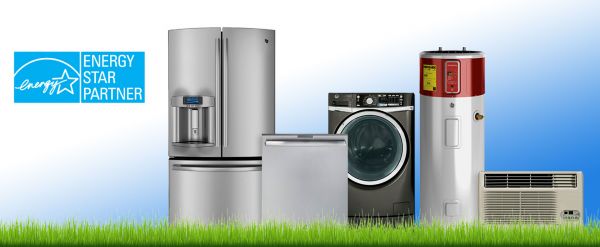|
There are plenty of ways to reduce energy use in your house. Also it can consequently save money daily. Some are free, others require an investment. These simple steps can potentially save you 10 to 25% on your monthly electric bill.
No-Cost Tips
• Turn off lights and appliances when not in use. Do not forget your computer. Most new computers have sleep settings.
• In the winter, open window coverings on the sunny side of your home to take advantage of free heat from the sun.
• Close blinds and drapes to keep heat out.
• In warm months, set the thermostat to 78 to 80 degrees when home and 5 to 10 degrees warmer at night or when you are not home.
• In the cold months, set the thermostat to 68 degrees when home, and then back to 55 to 68 degrees when unoccupied.
• Barbecue outdoors when practical. Reducing the heat coming into your home from any source, such as cooking, will reduce the load on your air conditioning.
• Use pool trippers to reduce the time your swimming pool pump runs -- 8 to 12 hours a day is plenty.
• Vacuum your refrigerator coils and do not obstruct the coils. They need air space to work.
• Make sure food is cool and covered before it goes into the refrigerator.
• Use your dishwasher, clothes washer and dryer, and cook as late in the evening as possible.
• If your dishwasher has a filter, keep it clean.
• Keep your freezer as full as possible. You can place containers or plastic bottles filled with water in the empty spaces.
• Keep the seals (gaskets) on refrigerators and freezers clean.
• Use the energy saver option on your dishwasher, allowing dishes to air dry.
• Run full loads in your washer and dryer, and use "solar drying" .
• Unplug your televisions/DVD/DVR when you are on vacation. Most new sets draw power even when they are turned off.
• Keep lights and lighting fixtures clean, especially if you are reducing the number of lights you use.
• If your A/C unit is on the ground, keep the area around it clean and free of obstructions to maintain air flow.
• Close foundation vents in the winter months.
• Clean the reflectors underneath the burners on stove-tops.
• Set your water heater to 120 degrees.
Low-Cost Tips
• Use LED bulbs instead of incandescent ones. Regular bulbs use most of the electricity to generate heat, so use care when changing bulbs. Click here for our recommend LED bulbs with low cost. (LED A19 Light Bulb, 60W Equivalent, Efficient 9W, 24 Pack - 7 Yr)
• Clean your furnace system and check ducts for leaks.
• Install electrical outlet and switch plate insulation.
• Caulk windows, and caulk and weather-strip doors. Keep the outside air out and the inside air in.
• Install a hot water heater blanket, but be careful not to cover vents or temperature settings.
• Fix leaky faucets and install low-flow shower heads.
• Use room fans to keep the air moving and reduce the feeling of heat in your home.
• Install hot water pipe insulation. Do keep the insulation at least six inches away from the flue (exhaust pipe) of gas water heaters.
• Replace furnace and air conditioner filters. Spray the filters with a light coating of lemon furniture polish or vegetable oil cooking spray to help trap dirt in the filter.
• Replace regular thermostats with programmable thermostats.
• Plant trees and shrubs on the south and west side of your residence. The vegetation acts as insulation and provides shading, reducing the heat in a building.
• Consider buying a cover for your pool to retain heat in the water.
Added-Cost Tips
• Replace inefficient and single-pane windows with energy efficient, multi-pane, thermally-broken and vinyl-framed windows.
• Install floor and ceiling insulation.
• Service your heating and air conditioning systems once a year, replacing them if necessary.
• Replace older appliances with energy efficient ones. All appliances have an Energy Guide Label that tells you how efficient it is and how much it will cost you to run. Often times, an appliance more than 10 years old is not likely to be energy efficient. Look for products with the ENERGY STAR® label.
• If your furnace is over 10 years old, replace it with a 90% or greater Annual Fuel Utilization Efficiency (AFUE) rated unit.
• Have ceiling fans installed in all bedrooms and your family room. They can make you more comfortable while allowing you to save money by adjusting your thermostat.
• Test and seal your ductwork. Not only does this improve the efficiency of your heating and cooling system, it makes the house more comfortable.
• Add a solar heater for the water in your swimming pool.
• Add window screens or window films to reduce the sun heat entering in your home. (Coavas Privacy Window Film Sun UV Blocking Frosted Static Clings Non Adhesive Opaque Vinyl Decorative Glass Door Stickers Heat Control)

|
